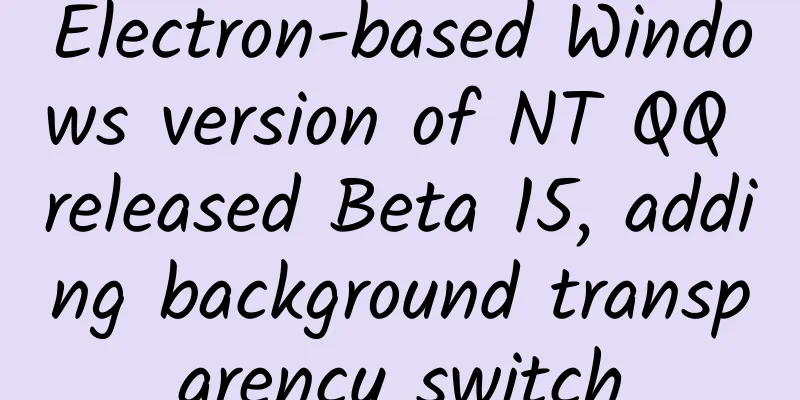Android is no longer popular, Fuchsia is the future

|
When Google released the Android system in 2008, it certainly didn't expect that it would develop to 2019, let alone reach such a scale: according to statistics, Android's market share has reached 85%, covering more than 30% of the world's total population. At that time, the mobile Internet was just emerging, and no one knew how big a wave Android would create. Now Android and iOS occupy the entire mobile operating system, and Android is flourishing and influencing many people's work, life, diet and travel, and it is unparalleled at the time. However, when you carefully consider the Android platform, you will find that Android has deviated from Google's course. Android is no longer GoogleAndroid has gone through 9 versions of updates so far, and the tenth generation Android Q has also arrived. Each generation is accompanied by a large number of functional updates and performance improvements. However, many of Android's new features and new specifications are not fully implemented. Even with the growing strength of hardware manufacturers, mobile phone manufacturers have launched their own customized systems, such as Xiaomi's MIUI, Huawei's EMUI, Meizu's Flyme, OV's ColorOS, etc. The common point of these customized systems is that they have evolved their own design language, operating habits and optimization modes, which are completely different from Google's native Android. Many user experiences are also contrary to the perception advocated by Google. It can be said that many customized systems are more like Apple's iOS, rather than Google's Android of the same origin. On the contrary, Google's Android has to be constantly transformed in reverse. For example, the full-screen gestures, after the release of iPhoneX, various mobile phone manufacturers have added this revolutionary gesture operation to their own operating systems, which has gradually changed the user's operating habits. As a result, Google has to add similar full-screen gestures to its next version of Android; for example, the dark mode that has long existed in the customized systems MIUI, Flyme, and Hydrogen OS of mobile phone manufacturers is also an important feature that Google will try to add to the next major version of Android Q. These evolutions show that Google's Android has lagged behind other domestic operating systems in terms of functionality by at least one major version, and the time gap is more than a year. Therefore, Android is no longer Google's, and has long gone beyond the channels and routes defined by Google. Although control seems to be shrinking, in fact, mobile phone manufacturers are becoming less and less dependent on Google's Android, and are even developing their own backup systems, such as Samsung's Tizen operating system that has been developed for many years, the Kirin operating system that has recently been confirmed by Huawei to be self-developed, and the Xiaomi MIOS operating system that has been rumored but not yet confirmed.
Fuchsia OS is the future of GoogleConsumers are actually happy to see a hundred schools of thought contend, but it is indeed the sword of Damocles for Google. Control over the mobile phone operating system is the basis for Google to promote its own advertising model and an important means of profit. However, control is the natural enemy of the open ecosystem, and the open ecosystem is the basis for Google to catch up and quickly occupy the market. Control and open ecology are so contradictory that even a powerful company like Google finds it difficult to blend them. The rules are already like this. Instead of trying hard to change the stubborn problems, it is better to find another way. According to reliable information, Google has been developing a new system, Fuchsia OS, as early as 2016. It abandons the Linux bottom layer and is based on Google's new Zircon kernel. Everything starts from scratch. The new system can be used on multiple platforms such as mobile phones, tablets, notebooks, IOT, and game consoles. Fuchsia OS can be said to be Google's early layout for the future, hoping to enter the future market with the first-mover advantage, seize the initiative for itself, and get rid of the hidden dangers of Android in the future. First of all, Fuchsia is a real-time operating system that meets the virtual reality needs of the 5G industry. It has a better linkage mechanism and keeps up with new industries such as telemedicine, virtual games, remote driving, and the Internet of Things. It embraces the development of the future era and may be able to better take over the Android market and maintain Google's existing industrial position. Secondly, Fuchsia uses a new design language, Dart, and the underlying graphics engine is based on the Vulkan standard. It optimizes GPUs and multi-cores, and can deeply adapt to and tap into future hardware architecture capabilities. This is equivalent to supporting future hardware and image standards in advance, making the system more future-proof. In the short term, Google will continue to support and evolve the Android system, and continue to use it to conquer the market and compete with Apple. However, Fuchsia OS is the focus of Google's future and an important platform for Google's multi-platform strategy. We might as well wait and see how much excitement Fuchsia OS can create. |
>>: Apple, the big brother, takes the lead in smartphones changing from hard to soft
Recommend
When the projector becomes a "ball": Haier iSee mini user experience
Nowadays, electronic products come in more and mo...
In-depth analysis of information flow, splash screen, and incentive video advertising!
Mobile advertising comes in many forms. For mobil...
The latest situation of the epidemic in Changsha, Hunan in 2022: Is it a high-risk area or low-risk? Can I go now?
Since March 14, Changsha has reported a total of 1...
After promoting tens of millions of information flows, I have summarized these 6 points!
In today's mobile Internet era, we receive a ...
Popular Science | When hot water and cold water are put into the refrigerator together, why does the hot water freeze first?
If a cup of hot water and a cup of cold water are...
Product Operations: 5 Things to Do to Increase AB Testing!
In growth work, AB testing can be said to be a me...
Talk about four kinds of App product designs that will never die if you don’t do it
[[120114]] 1. Superfluous products This kind of p...
How to operate Weibo? Sharing of Weibo operation ideas
Recently, many people have asked me how to operat...
Douyin Box Product Experience Report
The product inspection report of Douyin Box has j...
"Swordsman" movie series three collections HD
The secret martial arts manual "Sunflower Ma...
"Strong Mentality Training Techniques" training chapter, achieve dimensionality reduction in one week, and build a strong heart in one year
Course Contents: Section 01. Introduction - How t...
Do astronauts sleep while floating? Can the space environment cause genetic mutations? Let's find out what the truth is!
April 24, 2023 is the eighth " China Space D...
There is a magical flower hidden in your favorite beer
"Grind the malt into the wine vat, saccharif...
Operation hacker "TikTok from entry to mastery" quickly master skills to avoid misunderstandings and account suspension, quickly learn to make money (10 video lessons)
Course Description: The official product of the O...
iQiyi product analysis!
With the development of the Internet, traditional...









